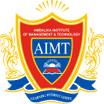- Home
- About
- Academics
- Admissions
- Placements
- Life @ Ambalika
- POLICIES
- Academic Policy
- Examination Policy
- Placement Policy
- HR Policy
- Research and Development Policy
- Anti-Ragging Policy
- Student Grievance Handling Policy
- Internal Complaint Committee Policy
- Maintenance Policy
- Purchase Policy
- Environment and Green Campus Policy
- IT Policy
- Startup and Innovation Policy
- Governance Policy
- Student Development Policy
- Green Campus Policy
- Contact
Chat with Us
On WhatsApp
IMPORTANT LINKS
OUR LOCATIONS
College Campus
Maurawan Road, Mohanlalganj,
Lucknow, Uttar Pradesh- 226301
Maurawan Road, Mohanlalganj,
Lucknow, Uttar Pradesh- 226301
- +91 9651 828 006
- +91 78804 99924
Head Office
Ambalika building, Subhash Marg,
(Near Sudarshan Cinema),Charbagh,
Lucknow, Uttar Pradesh
Ambalika building, Subhash Marg,
(Near Sudarshan Cinema),Charbagh,
Lucknow, Uttar Pradesh
Bihar Office
Flat no. E11, 1st Floor, Krishna Apartment, Boring road, Patna, Bihar (800013)
Flat no. E11, 1st Floor, Krishna Apartment, Boring road, Patna, Bihar (800013)
